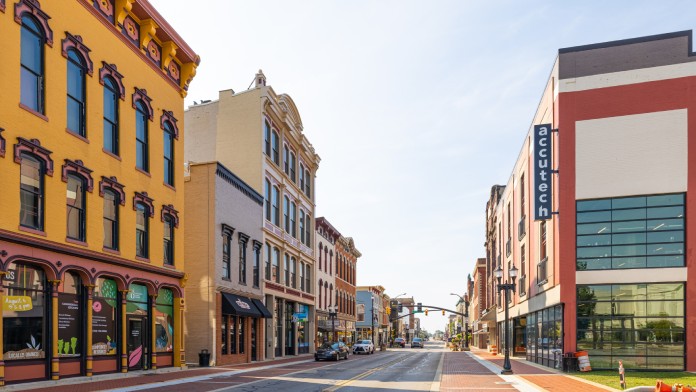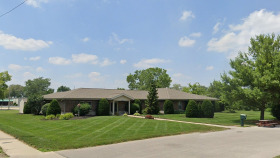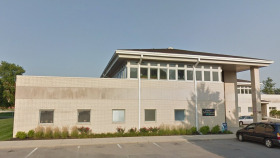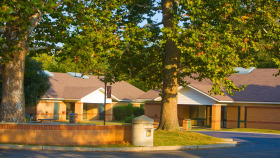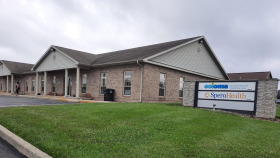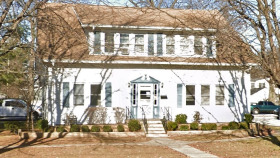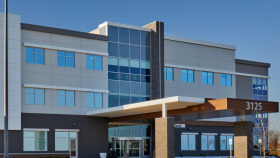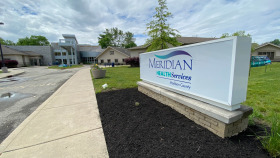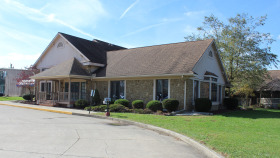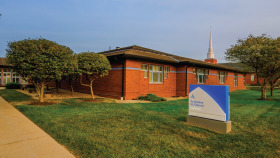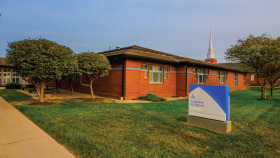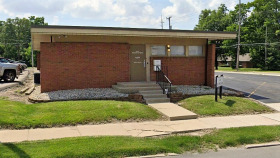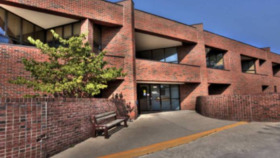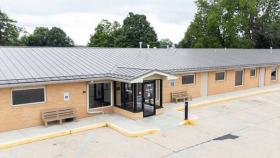Drug and Alcohol Statistics for Muncie, IN
Indiana ranks tenth among U.S. cities for drug and alcohol use. The number of people reporting drug and/or alcohol use between 2018 and 2019 is higher than the national average, and so are the rates of death from an overdose of one or more illicit or prescription drugs.2
The rise in substance use and overdose deaths is driven by opioid drugs, including both prescription medications and illicit substances such as fentanyl and fentanyl analogs. Muncie’s Delaware County has higher rates of drug and alcohol use and overdose deaths than surrounding counties and the state as a whole.3
Here are more recent statistics on drug and alcohol use in Muncie and Delaware County:4
In 2020, opioid drugs accounted for more than 80% of overdose deaths in the state.
About 85% of those deaths involved fentanyl, a highly potent opioid painkiller, or illegal fentanyl analog drugs.
Levels of Substance Abuse Care
Indiana offers several levels of care for addiction treatment. Some people start with inpatient care and make their way through the various levels, while others can begin the process with less intensive treatment.
Alcohol and Drug Detoxification
Detox is often the first step, allowing you to move on to formal treatment services once it is complete. It is the process of safely and comfortably removing drugs or alcohol from your system, in a supervised setting.
Inpatient Drug and Alcohol Rehab
Inpatient rehab, also called residential treatment, involves living at a facility to receive 24/7 care. Treatment methods typically include individual and group therapy, medication, and nutritional counseling.
Partial hospitalization programs (PHPs)
PHPs allow you to attend treatment at a hospital while living at home. Treatment services provided are usually the same as inpatient care, but you only stay at the hospital during treatment times, then return home.
Intensive Outpatient Programs (IOPs)
IOPs involve attending several hours of counseling over a few days each week. You spend the rest of your time working, at home, or fulfilling other obligations.
Standard Outpatient
Standard outpatient care is the least intensive treatment option, involving just one to two hours of treatment per week. This option is appropriate for highly motivated people with a strong support system.
Relapse Prevention
Relapse prevention, or aftercare, begins once you complete a rehab program. It includes ongoing support, such as 12-step groups, non-12-step groups like SMART Recovery, ongoing therapy, sober living homes, and more.
How to Pay for Substance Addiction Treatment in Muncie, Indiana
Private Insurance
Every insurance provider is required by law to cover substance abuse and mental health treatment services, to some extent. Indiana residents must contact their provider to learn more about specific coverage, including deductibles and copays.
Indiana Medicaid
Indiana Medicaid consists of multiple programs. Each program serves a different population, but the common theme is to provide services for low-income or under-resourced Indiana residents, including rehab treatment. The programs include:4
- Healthy Indiana Plan
- Hoosier Care Connect
- Hoosier Healthwise
- HoosierRx
- Medicare Savings Program
- Pharmacy Benefits
- Traditional Medicaid
- Indiana Medicaid Covered Services
Indiana Medicare
Indiana Medicare is a government program that provides health-cost coverage for residents who are over age 65 or have certain disabilities. Indiana residents can use Medicare to pay for drug addiction treatment services, including rehab. However, not all rehab facilities accept this form of payment.
Sliding Scale Rehabs
Some rehab programs in Indiana charge for treatment on a sliding scale, meaning participants only pay what they can afford based on income. These sliding-scale options are not always widely advertised, so Indiana residents should ask if they are available.
TRICARE in Indiana
Indiana TRICARE (North region) is a government program providing health insurance coverage to U.S. Armed Forces military personnel, veterans, and their dependents. This coverage includes addiction treatment services, such as rehab.
IHS-Funded Drug Rehabs
Indian Health Service (HIS) is a program that provides free addiction treatment to Indigenous people and Alaskan Natives. These Indiana residents can obtain free treatment even if other coverage is available.
Traveling to and Within Muncie, IN
 If you’re looking for an alcohol and drug rehab in Muncie, or if you’re visiting someone who’s in treatment at a drug and alcohol rehab in the area, you may want to know a few things about travel, accommodations and things to do and see in Muncie and nearby Indianapolis:
If you’re looking for an alcohol and drug rehab in Muncie, or if you’re visiting someone who’s in treatment at a drug and alcohol rehab in the area, you may want to know a few things about travel, accommodations and things to do and see in Muncie and nearby Indianapolis:
- The Ball State University campus in Muncie hosts the David Owsley Museum of Art and numerous theater and music venues.
- Muncie has its own ballet and symphony orchestra, as well as a variety of community activities for all ages.
- Muncie is about an hour’s drive from Indianapolis and its big-city attractions and amenities.
- The nearest airports include Fort Wayne International and Indianapolis International Airports, both about 75 miles from Muncie.
- The city is easily reachable by car via I-69, US Route 35, and several state routes.
- Muncie has most major hotel and motel chains, including Best Western, Comfort Inn, and Super 8.
- Local bus service runs 14 routes through the city every day except Sunday.
Indiana Alcohol and Drug Laws
Indiana lawmakers have enacted the following policies related to substance misuse and overdoses1,2,3,4
Indiana Lifeline Law: This policy provides immunity for the crimes of minor possession, minor consumption, minor transport, and public intoxication for Indiana residents who reveal themselves to law enforcement while seeking medical assistance for a person suffering from an alcohol-related health emergency.
Social Host Liability: Indiana residents can be held liable if they give alcohol to someone they knew was already intoxicated and that person’s intoxication leads to injuries, damage, or death. It is also illegal to knowingly provide a place for minors to drink alcohol in Indiana.
Drinking in Public: In Indiana, it is illegal to be drunk in a public place if your behavior is dangerous, alarming, disruptive, or annoying. It is also illegal to be drunk or high on public transportation or at bus stations and airports.
Involuntary Commitment: Indiana Code 12-23-11.1-1 states that an Indiana resident who is a drug abuser, alcoholic, or incapacitated by alcohol may be involuntarily committed, except for those who are charged with or convicted of an offense that makes them ineligible for treatment.
Good Samaritan and Naloxone Access Law: his combined law is designed to prevent overdose deaths. The Good Samaritan protections provide limited criminal immunity for controlled substance and drug paraphernalia possession for Indiana residents who seek help in the event of an overdose.
This immunity is limited to those who call for help and not the person experiencing the overdose. Immunity is also limited to those who have obtained naloxone through the channels outlined in this law, which allows pharmacies and health professionals to provide naloxone directly or by standing order to those at risk of opioid-related overdose and those who are in a position to assist individuals at risk of overdose.
Resources
- City of Muncie. (n.d.). Welcome to the City of Muncie: The Capital of East Central Indiana.
- Kaiser Family Foundation. (2020). Mental health and Substance Use State Fact Sheets: Indiana.
- Addictions Coalition of Delaware County. Ball State University. (2021). Delaware County Substance Use Profile.
- Indiana State Department of Health. (2019). Drug Overdose Data Brief 2019.

